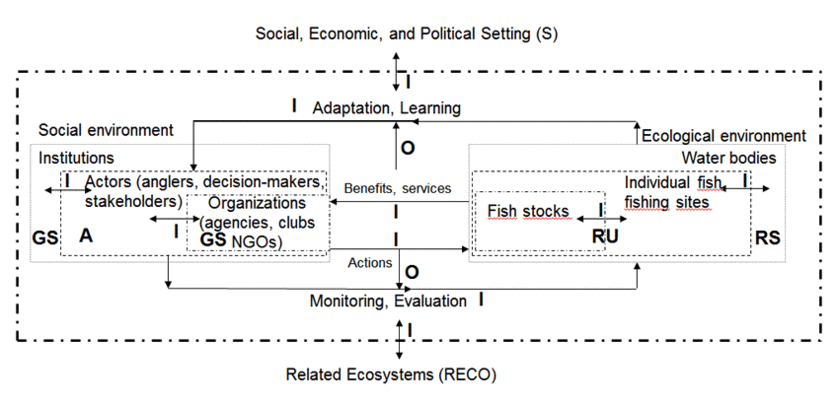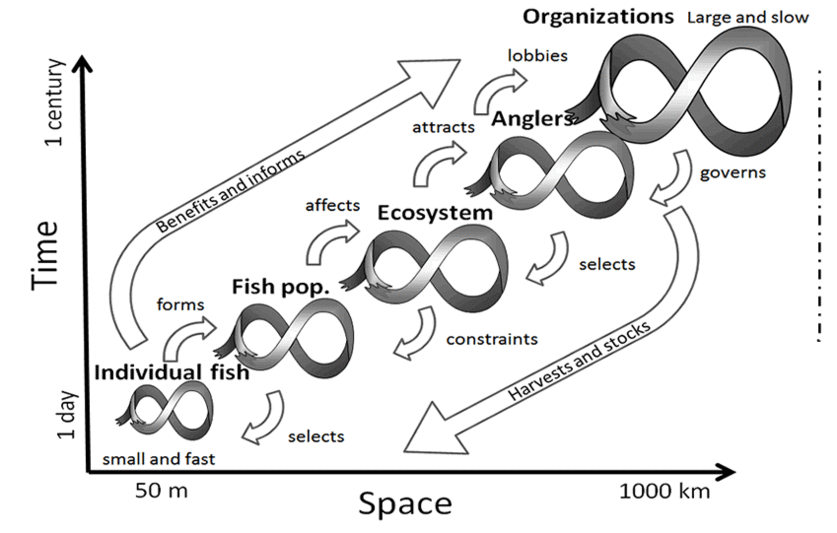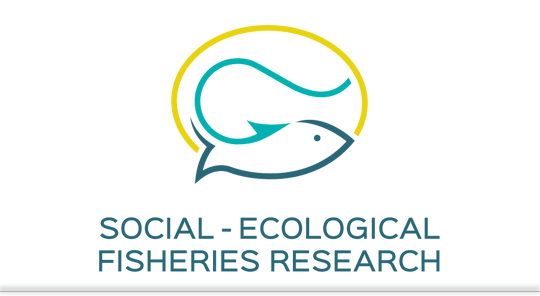Mission / About us
In the Division of Integrative Fisheries Management, Faculty of Life Sciences at Humboldt-Universität zu Berlin we pursue a strongly integrative, inter- and transdisciplinary research program in sustainability science aimed at understanding the social, economic, biological, ecological and evolutionary dimensions of freshwater recreational fisheries.
Our research is meant to generate the fundamentals of sustainable fisheries management. Our teaching prepares tomorrow’s fisheries managers to meet the complex challenges inherent in the governance and management of capture fisheries. We maintain close contact to the real world and collaborate, whenever possible and feasible, with angling associations, clubs, fisheries agencies and other nature conservation groups and stakeholders. We are also ardent advocates of public outreach.
Research philosophy and approach
We consider recreational fisheries to constitute a prime example of a coupled social-ecological system where anglers, managers, fish stocks and aquatic ecosystems strongly interact (Fig. 1).

To understand the complexity of the resulting interactions and its outcomes, we apply a range of methods from fisheries biology, ecology, evolution and applied social and economic sciences. The cornerstone of our work is analyzing the interactions and feedbacks of anglers and fish stocks in freshwater landscapes. We conceptualize recreational fisheries as strongly coupled systems with non-linear feedbacks and cross-scale interactions. We particularly emphasize the human side of the complex interaction by developing empirical models of angler behaviour and integrating them with fish population models.
On the basis of fundamental system knowledge we develop solutions for sustainable fisheries. Our research is interdisciplinary and integrates practioners such as angling clubs and associations, whenever possible. We integrate different scientific disciplines and science and society to arrive at robust conclusions that help fisheries management. To explain empirical findings we use a range of theories, including evolutionary biology, population ecology, behavioural ecology, utility theory, social-psychology, common pool resource theory, game theory, new institutional economics and bio-economics. We have amply experiences with applying classical fisheries biological methods, high resolution telemetry, genomics, experimental evolution, eco-genetic modelling, empirical social sciences, in particular survey-based research (face-to-face, mail, telephone, online), choice experiments, behavioural modelling and integrated, bio-economic modelling. We love to employ whole-ecosystem experiments, to learn about the reaction of entire communities, including anglers, to interventions. We work across scales and look at the adaptive dynamics of different biological and social-ecological scales of organization, scaling up from individuals to populations in single ecosystems up to the landscape level accounting for regionally mobile anglers and institutional dynamics. We have ample experiences with participatory research in workshop settings with anglers (Fig. 2).
Close to the real life, but scientifically sound

We prefer to work on questions that are of practical interest. These questions we prefer to answer with robust scientific methods to arrive at high quality publications, while leaving a legacy in local and regional fisheries management. Some examples of pertinent research questions include:
- Benefits and ecological risks of fish stocking
- Role and importance of protection of large fishes
- Efficacy of harvest slots relative to minimum-length limits
- Are some individuals more vulnerable to fishing gear than others and what does this mean?
- How do fish react to catch-and-release?
- Do fish feel pain?
- How and why do anglers behave the way they do?
- How can one manage recreational fisheries in landscapes?
- Efficacy of pedagogical interventions on anglers and water managers?
- How does the public perceive issues of animal welfare and nature conservation?
